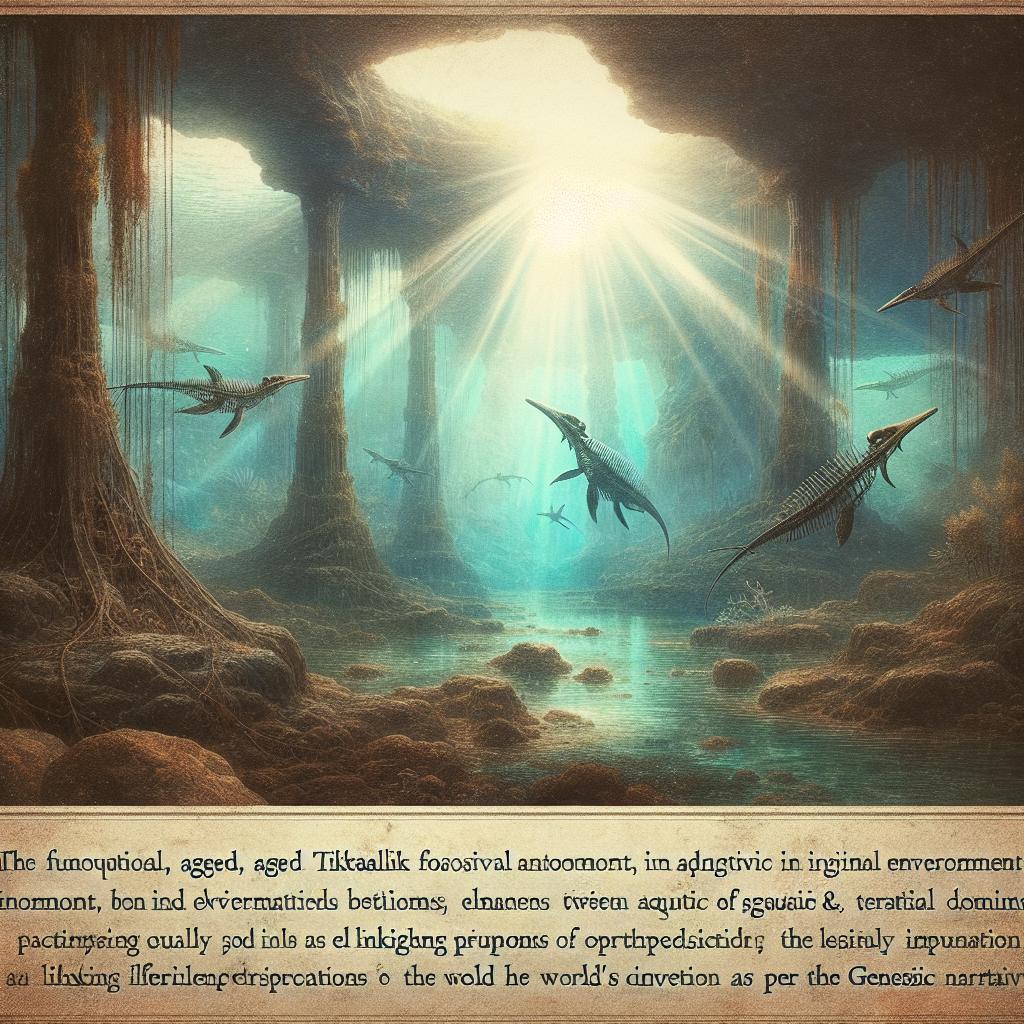
Divine Revelation: Unveiling the Tiktaalik-Finished Mystery
Published: 30 March 2024
Is the famous fish-fossil finished?
The recent discovery of trackways in Poland has caused a significant upheaval in the paleontological world and has cast doubt on the validity of the famous fish-fossil Tiktaalik as a transitional species. For years, Tiktaalik has been hailed as a crucial piece of evidence for the evolution of fish to land-dwelling creatures. However, the newly found trackways are dated 18 million years older than Tiktaalik, suggesting that four-legged animals existed long before it. This revelation challenges the narrative of Tiktaalik as the missing link between fish and tetrapods.
The Creationist Perspective
Creationists have long rejected the notion that Tiktaalik represents a transitional fossil. They argue that the interpretation of Tiktaalik's features as indicative of a fish-to-land transition is purely speculative and not supported by empirical evidence. The discovery of these older trackways further supports their position.
From a biblical perspective, the idea of gradual evolution from one species to another contradicts the creation account in Genesis. The Bible clearly states that God created each kind of creature "according to its kind." Therefore, there is no need for transitional forms or missing links in the fossil record. The existence of these trackways only reinforces the belief that God created distinct kinds of animals, each with its own unique characteristics.
Reassessing the Timing and Ecology
The discovery of these trackways necessitates a complete reassessment of our understanding of tetrapod origins and early evolution. Paleontologists now have to reconsider the timing and ecological setting of the transition from fish to land animals. It is crucial to approach this reassessment with an open mind and a willingness to reevaluate previously held beliefs.
It is important to note that scientific theories are subject to change based on new evidence. This is not an indication of scientific weakness but rather a testament to the scientific method's self-correcting nature. The search for truth and understanding requires constant reevaluation and refinement of existing theories.
Implications for Evolutionary Narratives
The implications of these new findings extend beyond Tiktaalik alone. They call into question the entire narrative of fish-to-land transition that has been promoted by evolutionary biologists. The neat diagrams and depictions illustrating the gradual evolution from fish to four-legged animal ancestors will need to be reconsidered and potentially discarded.
The fossils previously associated with Tiktaalik, along with other transitional fossils, now find themselves relegated to an evolutionary dead-end. This revelation highlights the dangers of constructing elaborate evolutionary narratives based on limited evidence. It serves as a reminder that interpretations of the fossil record are influenced by preexisting beliefs and biases.
Rethinking the Evidence
The recent discovery in Poland challenges the widely accepted belief in Tiktaalik as a crucial transitional species. However, it is essential to approach this new evidence with caution and careful analysis. Scientists will need time to rethink their current understanding and develop new interpretations.
Critics of creationism often claim that scientists rely solely on evidence while creationists work by faith alone. However, this recent upset in paleontology demonstrates that evidence does not speak for itself. It requires thoughtful analysis, interpretation, and mental exercise to make sense of it.
It is essential for scientists to recognize their own biases and vested interests when interpreting new evidence. The pursuit of truth should always take precedence over maintaining established theories or narratives. In light of this discovery, paleontologists must be open to revisiting their assumptions and reevaluating their conclusions.
Conclusion: The Need for Humility
The recent discovery of trackways in Poland challenges the traditional narrative surrounding Tiktaalik and the fish-to-land transition. From a conservative Christian perspective, this finding aligns with the belief in distinct created kinds rather than gradual evolution.
As Christians, it is important to approach scientific discoveries with humility and an understanding that our understanding is limited. Ultimately, our faith is not dependent on the accuracy of scientific theories but on the truth of God's Word.
While this discovery may lead to a reevaluation of evolutionary narratives, it does not undermine the fundamental truths of the Christian faith. Our faith is grounded in the belief that God created the world and all its creatures according to His divine plan. As we navigate the ever-changing landscape of scientific discoveries, let us hold fast to the unchanging truth of God's Word.
